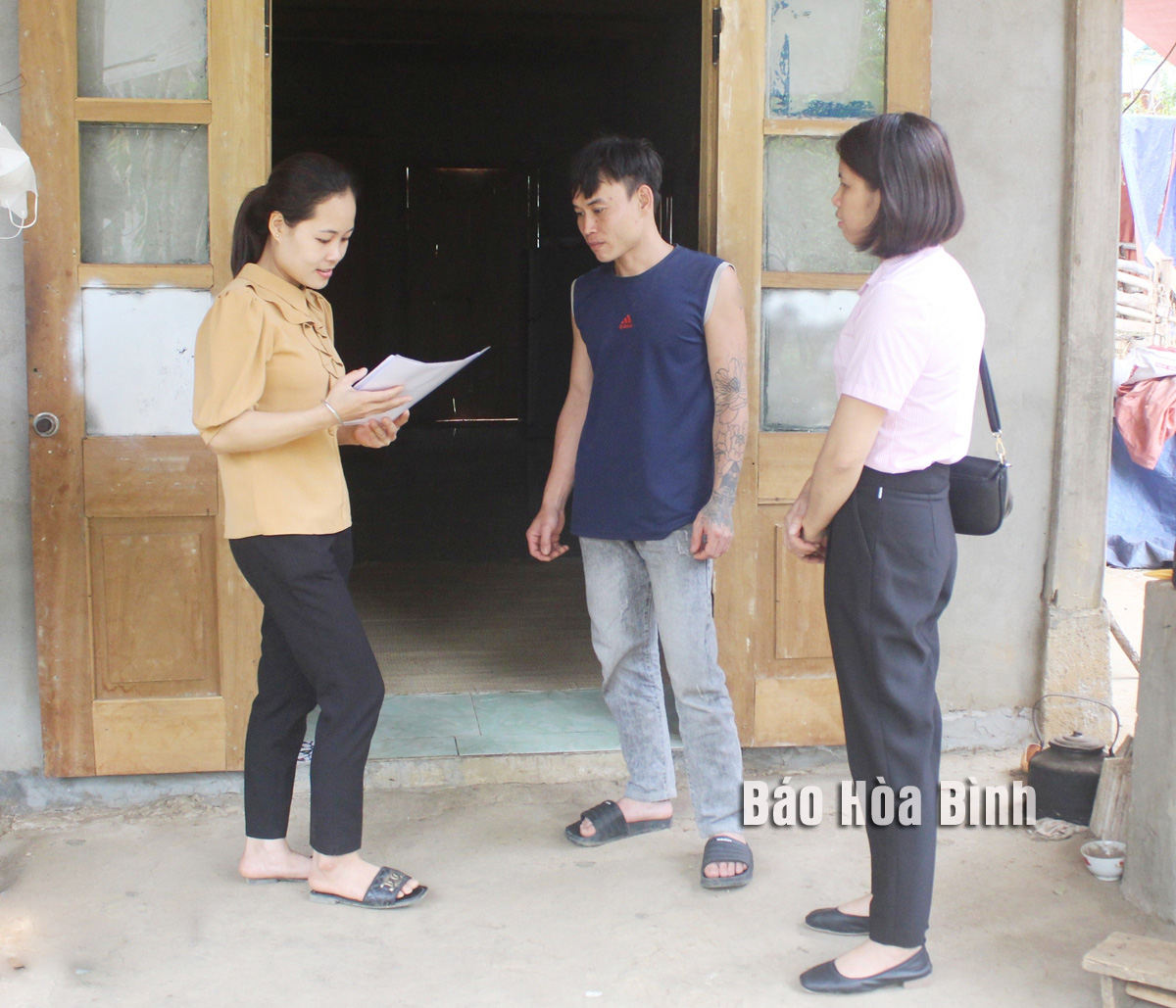



The Provincial Bank for Social Policies has been actively coordinating with the entrusted socio-political organizations to review and grasp the need for loans to solve jobs of the people in the province.
Mr. Hoang Tuan Viet's family nfrom Lien Son sub-area in Luong Son town (Luong Son) is one of the households doing good business from agricultural production. Thanks to a loan of 80 million VND from the capital of the employment creation from the Bạnk forSocial Policies, Mr. Viet's family has invested in re-planning the garden to raise chickens and grow grapefruit. Thanks to applying the knowledge from the vocational training classes and scientific and technical guidance, the plants and animals all develop well. Therefore, Mr. Viet's family achieved great success from the first harvests. From a household with an unstable income, Mr. Viet's family has now risen to become a typical production and business household of the district. "Thanks to the capital of the Bank for Social Policies, my family has had conditions to carry out the restructuring of crops and livestock, especially during the difficult times. Thereby, it has brought economic efficiency and more stable income. We hope that VBSP will continue to create conditions and have more capital for the economic development to bring about greater efficiency,” Mr. Viet says.
Ms. Dinh Thi Minh's family from Quyet Chien hamlet, Tu Ly commune (Da Bac) is also a household that has achieved many practical results in economic development thanks to the timely "support” of the capital to create jobs from the Bank for Social Policies. Being a long-time livestock farmer, however, due to the impact of the Covid-19 epidemic (2020 - 2021), the price of low cows greatly affected Mrs. Minh's family's income. Fortunately, during the difficult times, her family was able to borrow 50 million VND creating jobs to restore the economy. Ms. Minh says: Previously, the family raised cows in the forests and hills, far from home, so the management and care were very difficult. Due to the impact of the Covid-19 epidemic, the cow was stolen, so the family moved to raise livestock closer to home. With the money borrowed from the Bank for Social Policies, the family was able to build a barn and invest in growing grass to fatten the cows. Thanks to that, the economy has gradually recovered and become more stable.
It can be said that the effective implementation of the loan program creating jobs has made an important contribution to ensuring the social security. Thanks to this source of capital, Mr. Viet and Mrs. Minh's family and thousands of other households have risen for the economic development, escaping poverty and have gradually got rich. According to the Provincial Bank for Social Policies, the branch currently manages 20 policy credit programs. Since the beginning of the year, 11 programs have been disbursed with the loan sales of nearly 704 billion VND, lending to over 15.7 thousand turns of the poor households and other policy beneficiaries. In particular, the loans creating jobs is one of the three programs with the highest loan turnover, with 152 billion VND. The total outstanding debt of this credit program has reached 871.6 billion VND/18,950 outstanding customers, the second highest among the credit programs that the Provincial Bank for Social Policies is managing.